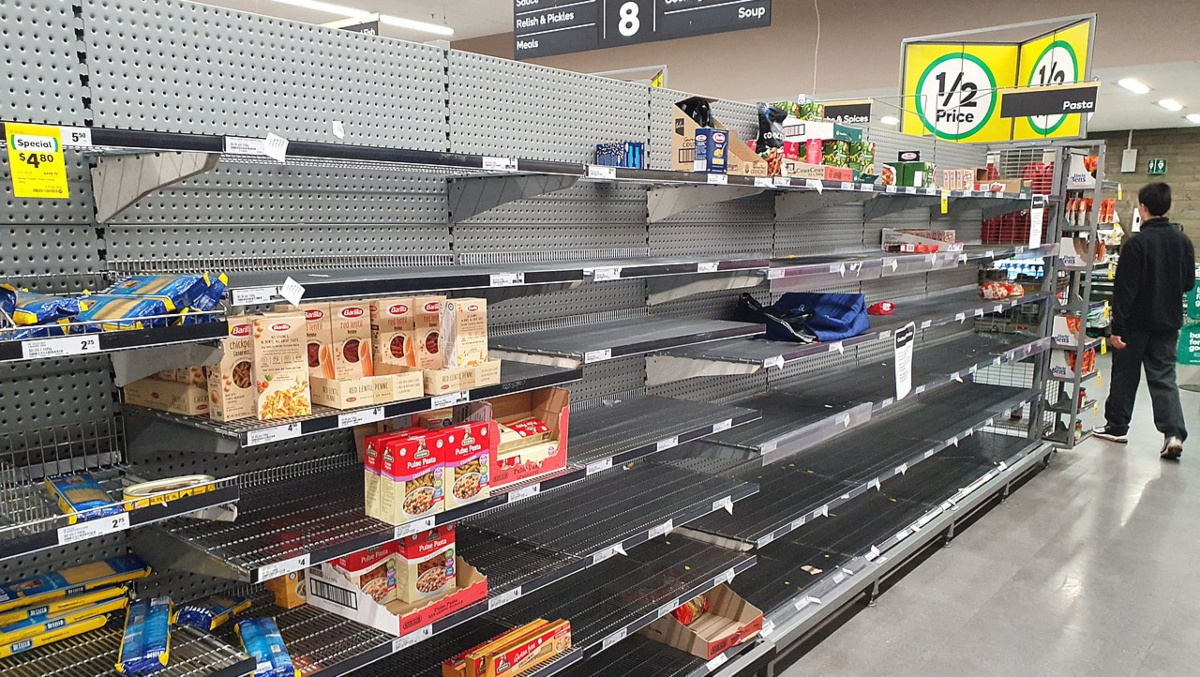The global COVID-19 pandemic has forced many countries across the world to go into partial and full lockdowns. Fleets of airplanes have been grounded. Non-essential businesses have been ordered to shut. Populations told to stay indoors except for necessary trips to groceries and medical facilities while always maintaining a physical distance from everyone around them.
Since the beginning of the crisis, consumers around the world have been panic buying and stockpiling on essentials goods such as food, toiletries and hygiene products like medical masks and disinfectants. Images of supermarket shelves stripped bare can be seen across the internet.
With demand for such goods skyrocketing and supplies not keeping up, prices have gone though the roof. However, such an occurrence is only normal and expected in a free market, where the laws of supply and demand dictate that when the latter is disproportionately higher than the former, prices must go up and vice versa.
Nevertheless, the COVID-19 pandemic has plunged the world into very uncertain and exceptional times. This is uncharted territory. Should the same laws apply given the circumstances? Will abiding by free market principles and continuing with business as usual take us through this crisis?
Business Forward spoke to Lisa Ellram, one of the world’s leading academics in Supply Chain Management and a distinguished professor of the subject at Miami University, about these challenges and what should be done to survive them and move forward.
Considering that the global economy is going through a phenomenon unprecedented in human history, Ellram believes that different business practices need to be adopted to ride out what the novel coronavirus is battering it with.
“These are not normal times, and they require us to break free market principles for the good of society,” she says. “From a humanitarian and safety standpoint, buying what you need and holding prices constant is the right thing to do. If people don’t have hand sanitizer and antibacterial soap because it is sold out, they may be more likely to get ill and spread disease, which would be bad for society.”
In light of the COVID-19 pandemic, Ellram believes suppliers should change their behavior and business strategies to ensure a fairer and more equitable distribution of their essential goods.
“They should try to hold their prices, increasing them only to cover their increased costs related to more expensive shipping, overtime and premiums they have to pay for supply. They should stick with selling to their current customers first. They should be good examples of ethical behavior. They should ration, dividing up what they have to sell so all customers get a share.”
Ellram maintains that such measures would be “very anti-free market, but good for society in an emergency situation such as we are currently experiencing.”
So why is it in everyone’s interest then that the traditional rules of supply and demand are bent during the current period and in times of crises in general? Why must the actors and stakeholders along the whole supply chain ensure that those most in need have access to crucial goods and services?
For one, Ellram says that if suppliers and businesses stick to taking the short-sighted approach by capitalizing on the crisis in the interest of short-term profits, eventually they will have to face “damaged reputations in the future when things normalize.”
Additionally, going the business-as-usual route can result in dire consequences in the long run which can also potentially be felt much sooner than anticipated.
“If things are in short supply, violence can break out as people become desperate. This is terrible when the shortage is artificially created with people hoarding ‘just in case.’ People are going out looking for things they feel they need, perhaps spreading the virus when they should be quarantined. This can overload the hospitals so that there are no beds available for those who are seriously ill, both with the virus and with unrelated diseases.”
“This is not business as usual,” Ellram says. “It is unethical to prey on human fear and desperation, or items that can help keep people safe.”









